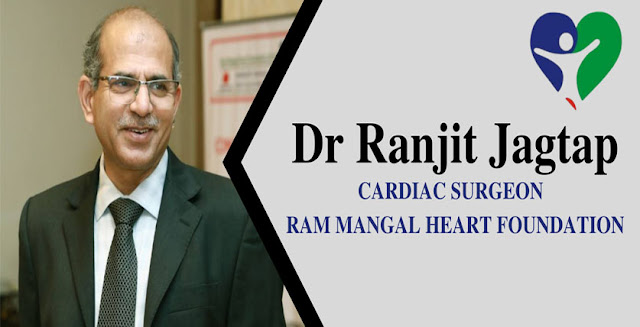The Ram Mangal Heart Foundation founded by Dr Ranjit Jagtap is regarded for doing the best cardiac procedures, and one of them is coarctation of the aorta repair. Coarctation of the Aorta occurs when a portion of the aorta is extremely thin. The design resembles an hourglass timepiece. It can lead to problems like high blood pressure over time. They use a cut between the ribs on the left side of the chest to fix this.
What Is Aortic
Coarctation and How Does It Happen?
Aortic coarctation is
a constriction of the aorta. It is the primary blood conduit that carries oxygen-rich
blood from the heart's left ventricle to all of the body's organs.
As the aorta arches
inferiorly toward the chest and belly, coarctation most usually happens in a
small stretch of the aorta just beyond where the arteries supplying the head
and arms take off.
The ductus arteriosus
is a blood artery in a foetus that contains unique tissue in its wall that
causes it to close in the first hours or days after birth. The presence of
additional ductal tissue extending into the neighbouring aorta can produce
coarctation, which causes aortic constriction as the ductal tissue contracts.
The aortic arch may
also be narrow in newborns with coarctation (hypoplastic). Other cardiac
abnormalities can cause coarctation, which usually affects the left side of the
heart. Bicuspid aortic valve and ventricular septal defect are the most
prevalent coarctation defects. Coarctation can potentially be a sign of more
serious single-ventricle heart abnormalities.
The left ventricle
needs to work harder in the presence of a coarctation because it must generate
a higher pressure than normal to drive blood through the narrow aorta segment
to the lower half of the body.
If the constriction
is severe, the ventricle may be unable to undertake this additional effort,
leading to congestive heart failure or insufficient blood flow to the body's
organs.
What are the signs
and symptoms of aortic coarctation?
The severity of the
constriction determines the symptoms. In moderate situations, the person may be
symptom–free until they reach maturity. Adults may have exercise intolerance,
headaches, shortness of breath, chest pain, nosebleeds, cold feet or leg
soreness after exercise, or high blood pressure that is difficult to regulate
(hypertension).
What is the treatment
for aortic coarctation?
Surgery was the only
therapy option for aortic coarctation twenty years ago. Although surgery is
still the gold standard, people with this problem can also benefit from balloon
angioplasty, stenting, stent grafting, as well as hybrid repair (a combination
of open surgery and stent grafts). Various factors determines treatment
options:
- patient's overall health
- the size and severity of the
coarctation,
- any concomitant aneurysms or valve
disease,
- the precise site of the
coarctation.
Surgery
The surgeon can
remove the constricted piece of the aorta and re-join the two ends when the
coarctation is minimal. An end-to-end anastamosis is the most common surgical
treatment for treating the illness.
According to Dr
Ranjit jagtap News, various types of bypass surgery, in which a graft
is stitched onto the aorta to reroute blood around the region of the lesion,
are also available. A bypass can be used in conjunction with a valve repair or
replacement treatment in patients with valve disease.
Angioplasty
Angioplasty is
another alternative for treating aortic coarctation, and it is the recommended
treatment at several medical institutes. A long, thin tube with a balloon on
the end enters the aorta through the blood vessels. Then it enters through the
groyne, similar to angioplasty for coronary artery disease. The balloon
inflates to widen the aorta once the catheter reaches the coarctation.
Care Following-Up
People with
coarctation of the aorta should see a congenital heart disease expert on a
regular basis. You should go for regular checkups at Dr
Ranjit Jagtap Clinic which will
include blood pressure monitoring and a clinical assessment. Moreover, every
two to five years go for doppler ultrasonography and MRI scans on a regular
basis.

Comments
Post a Comment